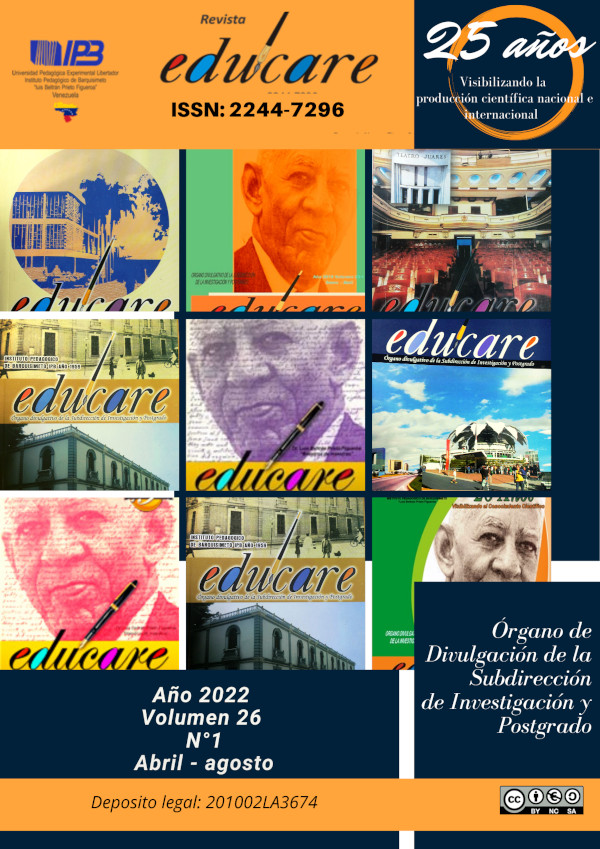Abstract
The qualitative approach is at a disadvantage compared to the quantitative approach. Making use of the resource of “epistemological surveillance” we can defend the scientific nature of the qualitative approach. Applied to this approach, epistemological vigilance highlights important ethical aspects such as concern for the “other” and the idea that there is no detached and pure subject in the Cartesian way. Likewise, the Heideggerian perspective, as the philosophical foundation of the qualitative approach, allows us to glimpse the urgency of highlighting this way of seeing knowledge. Once the philosophical foundations of methodological qualitativism have been laid, we study the explanation-comprehension dichotomy. Now, it is a mistake to think that physics has always been quantitative since ancient Aristotelian science was already comprehensive and qualitative, as revealed by Kuhn's studies. This essay concludes by pointing out the importance of recovering interest in understanding and in the qualitative approach in the current scientific community.
References
Aristóteles. (1994). Metafísica. Gredos
Denegri, M. A. [buselefante] (6 de julio del 2008). ¿Existe la magia? Marco Aurelio Denegri: Sí. [Archivo de Video]. Youtube. https://www.youtube.com/watch?v=1QXIQw8Ixis&t=190s
Derrida, J. (1977). Posiciones. Entrevista con Jacques Derrida. Pre-Textos.
Descartes, R. (1977). Meditaciones metafísicas. Alfaguara.
Dilthey, W. (1949). Introducción a las Ciencias del Espíritu. En la que se trata de fundamentar el estudio de la sociedad y de la historia. FCE.
Doulián, N. (2010). Las prácticas de vigilancia epistemológica de acuerdo a los cristales de Michel Foucault. Hologramática - Facultad de Ciencias Sociales UNLZ. Año VII, Número 12, V1, 157-169. http://www.cienciared.com.ar/ra/usr/3/891/hologramatica_n12pp157_169.pdf
Heidegger, M. (1993). El ser y el tiempo. FCE.
Heidegger, M. (1994). Conferencias y artículos. Ediciones del Serbal.
Heidegger, M. (2009). ¿Qué es metafísica? Alianza Editorial.
Hernández, J. (2018). Comportamiento organizacional del docente universitario: entendimiento teorético etnográfico en la Universidad Politécnica Territorial José Antonio Anzoátegui. Tesis doctoral. Barquisimeto: Universidad Yacambú.
Kuhn, T. (2004). La estructura de las revoluciones científicas. FCE.
Levinas, E. (2002). Totalidad e infinito. Ediciones Sígueme.
Lewis, C. I. (1912). Implication and algebra of logic. Mind (New Series), N° 21, 522-531.
Macionis, J. y Plummer, K. (2007). Sociología. Pearson Prentice Hall.
Miller, B. (2011). Antropología cultural. Pearson Prentice Hall.
Granados, O. (2016). El enfoque cualitativo ¿Un complemento de la racionalidad o una variante del enfoque multimétodo en investigación científica? SAPIENTIAE: Revista de Ciencias Sociais, Humanas e Engenharias, Vol. 1, N° 2. https://www.redalyc.org/articulo.oa?id=572760853003
Oré, N. (2020). Entre la filosofía moral y la epistemología: la vigilancia epistemológica en el quehacer del investigador cualitativo. Revista SOMEPSO. Vol.5, núm.2, 41-64. https://revistasomepso.org/index.php/revistasomepso/article/view/83/64
Piñero, M., Rivera M. y Esteban E. (2019). Proceder del investigador cualitativo. Precisiones para el proceso de investigación. UPEL y UNHEVAL.
Popper, K. (1962) La lógica de la investigación científica. Tecnos.
Sampieri, R., Fernández, C. y Baptista, M. (2014). Metodología de la Investigación. McGraw-Hill / Interamericana Editores.
Sánchez Flores, F. A. (2019). Fundamentos epistémicos de la investigación cualitativa y cuantitativa: consensos y disensos. Revista Digital de Investigación en Docencia Universitaria, 13(1), 102-122. doi: https://doi.org/10.19083/ridu.2019.644
Sanz, J. (1987). Introducción a la ciencia. Amaru.

This work is licensed under a Creative Commons Attribution-NonCommercial-ShareAlike 4.0 International License.
Copyright (c) 2022 EDUCARE Journal - UPEL-IPB - Second New Stage


